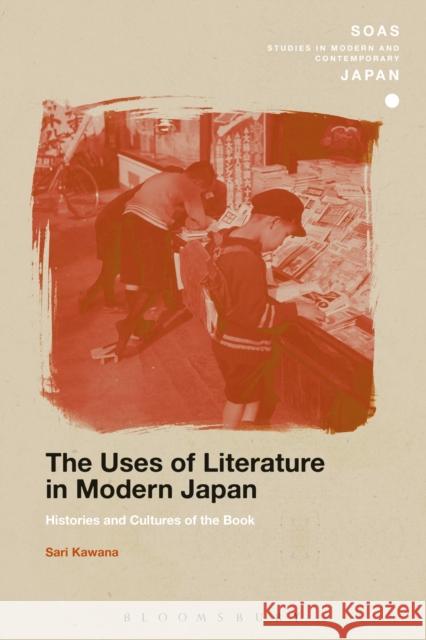The Uses of Literature in Modern Japan: Histories and Cultures of the Book » książka
The Uses of Literature in Modern Japan: Histories and Cultures of the Book
ISBN-13: 9781350024915 / Angielski / Twarda / 2018 / 288 str.
The Uses of Literature in Modern Japan: Histories and Cultures of the Book
ISBN-13: 9781350024915 / Angielski / Twarda / 2018 / 288 str.
(netto: 603,92 VAT: 5%)
Najniższa cena z 30 dni: 594,91
ok. 22 dni roboczych.
Darmowa dostawa!
The Uses of Literature in Modern Japan explores the varying uses of literature in Japan from the late Meiji period to the present, considering how creators, conveyors, and consumers of literary content have treated texts and their authors as cultural resources to be packaged, promoted, and preserved. As the printed word became a crucial form of entertainment for an increasingly literate public in early 20th-century Japan, the publishing industry developed by leaps and bounds. This study illustrates how the industry exerted forces strong enough to influence the appearance and substance of literary output. Touching upon a wide array of key industry players as well as authors and their works, Kawana takes up previously neglected issues such as the materiality of texts, the role of editors and advertising campaigns, the interplay between literature and other media and the creation and dissemination of larger cultural fantasies tied to literary consumption. She stresses the agency and creativity with which readers engaged literary works, from unintentional misreadings of propaganda literature to innovative adaptations of canonical texts in visual media, culminating in the practice of literary tourism. Moving beyond close reading of texts to look at their historical context - the rise of literacy and social mobility in the Meiji period, the redistribution of leisure time and the growth of unemployment in the Taisho period, and wartime censorship and the subsequent economic boom in the Showa period - the book will appeal not only to scholars and students of modern Japanese literature but also those studying the history of the book and modern Japanese cultural history more broadly.











